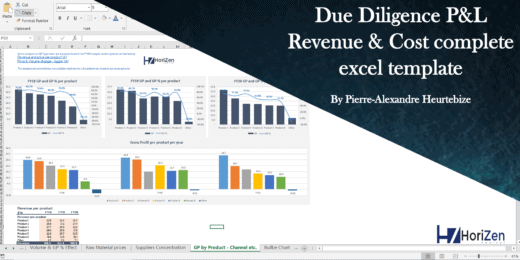Explore Best Practices With Business Valuation Accreditation

Business valuation accreditation involves rigorous best practices to ensure accurate determination of a company’s worth. It emphasizes industry standards and professional expertise to deliver reliable valuation results.
When businesses seek out accreditation for their valuation processes, it reflects their commitment to upholding the highest standards in determining their financial worth. This accreditation provides assurance to stakeholders and potential investors that the company’s valuation is carried out with integrity and precision.
Adhering to best practices in business valuation ensures that the process is conducted transparently and accurately, instilling trust and confidence in the company’s financial standing. By following accredited best practices, businesses can demonstrate their dedication to thorough and reliable valuation methods, aligning themselves with industry standards to showcase their financial strength and stability. The attainment of business valuation accreditation signifies a commitment to professionalism and excellence, enhancing credibility and trust in the valuation process. It also serves to mitigate potential risks and uncertainties associated with inaccurate or biased valuations, strengthening the overall financial integrity of the company.
Why Business Valuation Accreditation Matters
Business valuation is an intricate field that blends finance, economics, and law to estimate the worth of a company. As businesses constantly evolve in a dynamic marketplace, the demand for proficient professionals who can accurately assess their value is perennial. Accreditation in business valuation not only signifies a benchmark of excellence but also serves as a catalyst for career advancement. It embodies three fundamental benefits: demonstrating competency, enhancing credibility, and opening doors to opportunities.
Demonstrates Competency
At the heart of accreditation lies the verification of an individual’s expertise and skill level. This is accomplished through a rigorous standardized evaluation process that assesses one’s knowledge and application of business valuation principles. By successfully navigating these evaluations, professionals prove their proficiency and dedication to their craft. This competency is not just about theoretical understanding but also about practical application, enabling them to tackle complex valuation challenges with precision and confidence.
Enhances Credibility
In the realm of business, trust is paramount. Accreditation acts as a seal of approval that builds trust with clients and solidifies a professional’s reputation within the industry. When clients seek valuation services, they look for individuals who can deliver accurate and reliable assessments. Accredited professionals are seen as authorities in their field, having demonstrated their commitment to maintaining the highest standards. This enhanced credibility is invaluable, fostering stronger relationships with clients and peers alike.
Opens Doors to Opportunities
Beyond the immediate benefits of competency and credibility, accreditation serves as a beacon that attracts new prospects. It increases visibility among peers, potential clients, and employers, signaling a professional’s commitment to excellence and continuous improvement. This recognition can lead to a plethora of opportunities, including challenging projects, leadership roles, and invitations to speak at industry conferences. For many, accreditation is a stepping stone towards achieving their career aspirations, enabling them to distinguish themselves in a competitive landscape.
In conclusion, accreditation in business valuation is more than just a certificate; it is a career investment that yields dividends in the form of competency, credibility, and opportunities. For professionals eager to navigate the complexities of the business world and make their mark, pursuing accreditation is a critical step towards realizing their full potential.
Understanding Business Valuation Accreditation
Definition And Importance
Business valuation accreditation is a recognized certification that validates professionals in determining the value of a company. It holds essential importance in ensuring accuracy and reliability in assessing the worth of businesses for various purposes.
Accreditation Organizations
- AICPA
- ASA
- NACVA
Requirements And Process
- Complete a specialized training program
- Pass a rigorous examination
- Gain relevant experience in the field
Benefits Of Obtaining Business Valuation Accreditation
Obtaining business valuation accreditation is a critical step towards establishing yourself as a trusted and knowledgeable professional in the field. This coveted accreditation not only demonstrates your expertise, but it also brings along a myriad of benefits that can significantly enhance your career prospects. In this article, we’ll delve into some of the key advantages you can expect to enjoy when you obtain business valuation accreditation.
Increased Marketability
Gaining business valuation accreditation instantly enhances your marketability, making you stand out from the competition. With this prestigious certification, potential clients and employers will recognize the depth of your knowledge and trust your ability to accurately assess the value of businesses. This increased marketability opens up doors to lucrative opportunities and positions you as a sought-after expert in the field.
Greater Earning Potential
One of the most significant benefits of obtaining business valuation accreditation is the potential for higher earnings. As a certified professional, you can command higher fees for your services due to the credibility and expertise associated with your accreditation. Clients and employers are willing to pay a premium for professionals who possess the necessary skills to accurately determine the value of businesses. This provides you with the opportunity to enjoy greater financial rewards for your expertise.
Access To Valuation Resources
By obtaining business valuation accreditation, you gain exclusive access to a wealth of valuable resources. These resources can range from industry-standard valuation methods and databases to a network of industry experts and thought leaders. Access to such resources ensures that you are equipped with the most up-to-date information and tools to conduct thorough and accurate valuations. This access not only enhances the quality of your work but also allows you to stay on top of emerging trends and best practices within the industry.
Best Practices For Business Valuation
When it comes to business valuation, adhering to best practices is crucial for accuracy and reliability. By obtaining accreditation and following industry standards, businesses can ensure that their valuation processes are robust and credible. Let’s explore some essential best practices for business valuation that are vital for maintaining the integrity and quality of valuation outcomes.
Establishing Sound Methodologies
Establishing sound methodologies is fundamental in ensuring the accuracy and reliability of business valuation. This involves the meticulous selection and application of valuation methods that align with the specific attributes of the business being valued. By utilizing robust methodologies, valuation professionals can yield comprehensive and well-founded assessments that serve as the foundation for informed decision-making.
Utilizing Appropriate Approaches
Utilizing appropriate approaches in business valuation is essential in capturing the intricacies of each unique business entity. This includes considering factors such as market conditions, industry trends, and the individual characteristics of the business. By employing suitable approaches, valuation experts can derive valuations that accurately reflect the true worth of a business, providing valuable insights for stakeholders and investors.
Maintaining Independence And Objectivity
Maintaining independence and objectivity is paramount in conducting business valuations free from bias or conflicts of interest. Accredited valuation professionals adhere to strict ethical standards, ensuring that their assessments are objective and impartial. This commitment to independence upholds the integrity of the valuation process, instilling confidence in the reliability of the outcomes.
Evolving Trends In Business Valuation
As the business landscape continues to evolve, it’s crucial for professionals in the financial realm to stay abreast of the latest trends and methodologies in business valuation. These changes are a response to the dynamic nature of commerce, as well as advancements in technology and globalization. This section will explore the evolving trends in business valuation, shedding light on emerging techniques, the influence of technology, and the importance of global standardization.
Emerging Valuation Techniques
With the dynamic nature of the business environment, emerging valuation techniques have gained prominence. These innovative methods, such as the income approach, market approach, and asset-based approach, enable valuation professionals to provide more accurate and comprehensive assessments, equipping businesses with valuable insights for strategic decision-making. The ability to adapt to new valuation methodologies allows professionals to extract greater precision and relevance from their assessments.
Impact Of Technology
The digitization of various business processes has significantly impacted valuation practices. Leveraging advanced analytical tools, machine learning algorithms, and big data analytics, valuation experts can source, analyze, and interpret vast amounts of data with unprecedented speed and accuracy. This technological transformation has revolutionized the valuation process, enhancing efficiency, reducing errors, and ultimately delivering more reliable and actionable insights to businesses seeking an accurate assessment of their worth.
Global Standardization
Given the increasingly interconnected nature of the global economy, the establishment of global standards for business valuation is paramount. Standardization ensures that valuation practices are consistent and harmonized across different jurisdictions, thereby facilitating more transparent and comparable assessments. This not only fosters trust and confidence in the valuation process but also enables businesses to operate and transact seamlessly across international borders.
Challenges Faced By Valuation Professionals
Valuation professionals play a crucial role in determining the worth of businesses. However, their job comes with its fair share of challenges. From navigating the complexity of valuation models to interpreting ever-changing regulatory guidelines, and dealing with the subjectivity of valuation, these professionals encounter several obstacles in their daily work. In this section, we will explore these challenges in further detail.
Complexity Of Valuation Models
The valuation process involves the use of various models that help assess the financial worth of a business. However, these models can be intricate, creating a significant challenge for valuation professionals. The complexity arises due to the multiple components and variables involved, such as cash flows, discount rates, market growth rates, and terminal values.
Besides, different models may be more suitable for specific industries or situations, making it essential for valuation professionals to select the most appropriate model for each case. Failure to understand and navigate the complexity of these models can lead to inaccurate valuations and potential financial repercussions.
Interpreting Regulatory Guidelines
Valuation professionals must also stay updated with the latest regulatory guidelines and standards set by regulatory bodies. These guidelines, such as those provided by the International Valuation Standards Council (IVSC) and the Financial Accounting Standards Board (FASB), serve as crucial frameworks for conducting valuations.
Interpreting these guidelines accurately is vital to ensure compliance and maintain the integrity of the valuation process. However, given the evolving nature of regulations and the potential for ambiguity, valuation professionals often face the challenge of correctly interpreting and applying these guidelines.
Dealing With Subjectivity
Valuation is not an exact science, and subjective judgments are often necessary. This subjectivity stems from factors such as the assumptions made, the selection of comparable companies, and the estimation of future cash flows. Valuation professionals must strike a balance between objectivity and subjectivity to produce reliable and credible valuations.
Finding this balance can be challenging, as different professionals may have varying opinions on crucial valuation elements. Additionally, subjective judgments can introduce bias into the valuation process, potentially leading to discrepancies in determining the true value of an enterprise.
Tips For Success In Business Valuation Accreditation
When it comes to business valuation accreditation, staying ahead of the game is crucial for success. Here are some essential tips to thrive in the field:
Continuous Education And Training
Continuous education and training are paramount in the world of business valuation accreditation. By staying updated with the latest industry developments and techniques, professionals can enhance their expertise and value to clients. Pursuing relevant courses, workshops, and certifications can significantly expand one’s skill set and ensure they are equipped to handle diverse valuation scenarios.
Networking With Industry Experts
Networking with industry experts is a vital component of success in business valuation accreditation. Engaging with peers, mentors, and leaders in the field not only provides valuable insights and knowledge but also opens the door to opportunities for collaboration and growth. By fostering strong professional relationships, individuals can gain access to diverse perspectives, best practices, and potential referrals.
Staying Updated With Current Research
Staying updated with current research is essential for maintaining relevance and accuracy in business valuation accreditation. Keeping a pulse on the latest studies, industry publications, and market trends allows professionals to incorporate robust and up-to-date methodologies into their valuation processes. This commitment to ongoing learning and adaptation ensures that valuations are consistently well-informed and reflective of the current economic landscape.
Future Outlook For Business Valuation Accreditation
The landscape of business valuation is undergoing a significant transformation, driven by a combination of technological advancements, evolving market dynamics, and the increasing complexity of global business operations. These changes have precipitated a shift in the industry’s outlook, emphasizing the importance of specialized knowledge and accreditation in business valuation. Below, we delve into the promising future of Business Valuation Accreditation, highlighting the key trends and opportunities that lie ahead for professionals in this field.
Increased Demand For Qualified Valuators
In recent years, there has been a noticeable uptick in the demand for qualified valuation experts. This surge is attributed to the growing recognition of the critical role that accurate and reliable valuations play in strategic decision-making processes, financial reporting, taxation, and mergers and acquisitions. Businesses, investors, and regulatory bodies are increasingly seeking professionals who possess not only a deep understanding of financial and accounting principles but also a robust accreditation in business valuation. Such credentials serve as a testament to the valuator’s expertise, reliability, and commitment to upholding high professional standards. As a result, individuals with reputable accreditation are finding themselves in a favorable position, with enhanced career prospects and opportunities for advancement in the field.
Cross-sector Application
One of the most compelling aspects of accreditation in business valuation is its wide applicability across various sectors. Whether it’s in finance, real estate, technology, healthcare, or manufacturing, the skills and knowledge of accredited valuators are in high demand. This cross-sector relevance is a testament to the versatile nature of business valuation as a discipline. It underscores the fact that understanding the value of assets, businesses, and intellectual property is a universal need, transcending industry boundaries. For professionals, this opens up a myriad of opportunities to specialize in niche markets or diversify their expertise across different sectors, thereby enhancing their career flexibility and resilience in the face of economic shifts.
Evolving Professional Standards
The field of business valuation is not static; it is characterized by continuous evolution, driven by new financial instruments, changes in regulatory frameworks, and shifts in market conditions. In response to these changes, professional standards for valuation are also evolving, ensuring that accredited valuators are equipped with the latest methodologies, ethical guidelines, and technical skills required to navigate the complexities of today’s business environment.
This ongoing development in professional standards not only enhances the quality and credibility of valuation services but also reinforces the importance of accreditation as a means of professional growth and development. For aspiring and current valuators, staying abreast of these changes and pursuing continuous education are crucial for maintaining relevance and excellence in their practice.
In conclusion, the future outlook for Business Valuation Accreditation is bright, marked by growing demand, cross-sector applicability, and the continuous evolution of professional standards. For aspiring professionals, the path forward offers immense promise and growth opportunities, highlighting the value of pursuing accreditation in this dynamic and critical field.
Frequently Asked Questions
What Is Business Valuation Accreditation?
Business valuation accreditation is a professional designation that certifies a person’s expertise in determining the value of a business. It involves rigorous training and testing to ensure proficiency in this specialized field.
Why Is Business Valuation Accreditation Important?
Earning accreditation in business valuation demonstrates a commitment to excellence and adherence to industry standards. It enhances credibility, trust, and competence in accurately assessing the worth of a business, crucial for informed decision-making and financial transactions.
How Does Business Valuation Accreditation Benefit Professionals?
Professionals with business valuation accreditation possess enhanced knowledge and skills, leading to better career prospects, increased earning potential, and a competitive edge in the industry. Accreditation also signifies a dedication to upholding best practices and ethical standards.
Conclusion
Obtaining a business valuation accreditation is a key step for individuals or organizations looking to navigate the complex world of valuing businesses. This accreditation ensures that you have the necessary expertise and credibility to perform accurate and reliable valuations. By following best practices and staying up to date with industry standards, you can enhance your skills and reputation in the field.
Don’t miss out on the opportunities that business valuation accreditation can bring to your career or business. Start exploring the best practices today.



















































